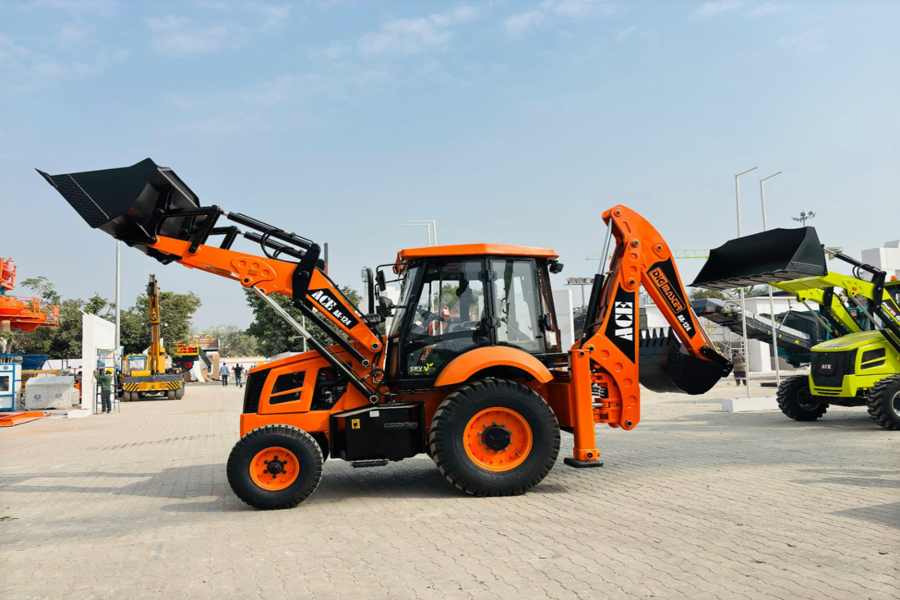Investing in construction equipment is a significant decision that can impact the success of your projects for years to come. With numerous options available, choosing the right machinery requires careful consideration to ensure you’re making a smart financial move. Whether you’re expanding your fleet or replacing old equipment, understanding the key factors that influence your investment is crucial. From assessing your project needs to evaluating long-term maintenance costs, each decision can make a substantial difference in your bottom line.
In this post, we’ll explore six essential things to consider before purchasing construction equipment—helping you make an informed choice that aligns with your goals and optimizes your operations. Without further ado, let’s dive in.
Assessing Your Business Needs and Project Requirements
When investing in construction equipment, it’s crucial to start by evaluating your business needs and the specific projects you undertake. Consider the types of construction projects you regularly manage, such as residential, commercial, or infrastructure work, and the specific equipment required for each. Do you need equipment for digging, lifting, or transportation?
By aligning your investment with the unique demands of your projects, you can avoid unnecessary purchases and ensure that the equipment will deliver the best return on investment. A thorough needs assessment ensures that you focus on the equipment that will maximize productivity, efficiency, and long-term value for your company.
Equipment Features and Technological Advancements
Modern construction equipment is equipped with a variety of advanced features that can enhance productivity, safety, and performance. Look for machines that offer innovative technology, such as GPS tracking, telematics, or automation capabilities. For instance, you can find Volvo EC480 excavators with impressive technical features that optimize fuel efficiency and improve operational accuracy. These features not only reduce operational costs but also enhance the overall quality of your projects.
It’s important to prioritize equipment with the right technological advancements that will support your current and future needs while keeping your operations ahead of the competition.
Total Cost of Ownership (TCO)
The total cost of ownership (TCO) is a critical factor to consider when investing in construction equipment. While the upfront purchase price is important, it’s essential to factor in maintenance, repairs, fuel consumption, insurance, and depreciation over time. Equipment that is more affordable initially might come with higher operating costs that can add up significantly.
Conversely, an expensive machine with lower operating costs could be more cost-effective in the long run. Be sure to calculate the projected TCO for any equipment you’re considering to ensure it fits within your budget and contributes to your business’s profitability.
Brand Reputation and Reliability
The brand reputation and reliability of the construction equipment you invest in can have a major impact on your business’s operations. Equipment from trusted brands is more likely to offer durability, minimal downtime, and strong customer support. Research reviews, performance reports, and warranty policies to get a clearer picture of how reliable a specific brand or model is in real-world conditions.
A solid warranty and readily available replacement parts can save you significant time and money in the future. By choosing reputable brands known for their quality and after-sales service, you can ensure smooth, efficient operations and minimize costly breakdowns.
Resale Value and Market Demand
Construction equipment typically depreciates over time, but some models hold their value better than others. Before making an investment, consider the resale value of the equipment you’re purchasing. Equipment from well-known brands with high demand tends to retain a higher resale value, offering you the opportunity to recover a portion of your initial investment when it’s time to upgrade or sell.
Market trends can also affect the demand for certain equipment types. Stay informed about industry shifts and select equipment that will be easy to resell or trade in, ensuring you maintain a positive return on investment over the equipment’s lifespan.
Maintenance, Support, and Service Availability
A key consideration when purchasing construction equipment is the availability of maintenance, support, and spare parts. Frequent repairs and extended downtime can seriously impact your project timelines and profits. Choose equipment from brands that offer robust after-sales support, including easy access to parts, service networks, and comprehensive maintenance packages. Regular maintenance ensures optimal performance and extends the lifespan of your machinery.
Also, consider the expertise of your in-house technicians and whether training is available to handle specific equipment repairs. A strong support network and reliable service options can prevent costly delays and ensure that your equipment runs smoothly for years to come.
Investing in construction equipment is a significant decision that requires careful thought and planning. By assessing your business needs, considering equipment features, and evaluating the total cost of ownership, you can make an informed choice that benefits your operations. It’s also important to factor in brand reputation, resale value, and maintenance support to ensure your investment remains profitable over time. With the right equipment, your business can enhance productivity, reduce operational costs, and stay competitive in the construction industry. Prioritize these key considerations to secure the best equipment for your projects and long-term success.

